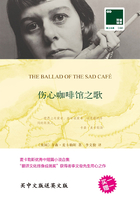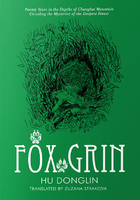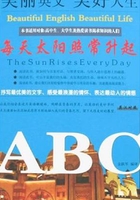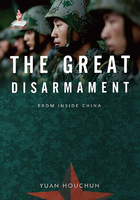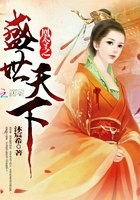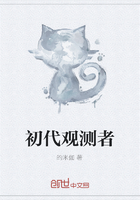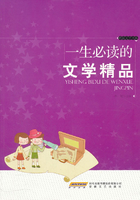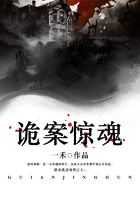Dianbai County was a coastal region of Zhanjiang Prefecture at the time (now part of Maoming Prefecture), with a high annual rainfall of which little stayed on surface rivers. The lack of water for irrigation meant that the area had long been poor and prone to drought. When the county Party committee learnt that Comrade Xiaoping and the other central leaders were coming to inspect the area they were delighted, the local secretary personally arranging for people to go to the county department store as quickly as possible to borrow glasses, as they only had earthenware mugs. Such was the poverty of the county that the committee had no way of affording over a hundred glasses, but borrowing them for a while would do in a pinch. Besides, the leaders didn't need to know what was happening. The glasses were used during the visit, but the present that committee secretary Wang Zhan'ao had ordered to be prepared - sweet potatoes and taro (the only thing they had to give at the time) - had already been put in one of the guests' cars rather than given to Wang for presentation at dinner. Once Deng Xiaoping discovered the gift, he made sure to refuse it with the utmost politeness.
What caught Deng's eye in Dianbai were the trees planted over the last few years to improve the local environment. Zhanjiang Party secretary Meng Xiande had told him that they were able to plant trees in such sandy terrain close to the sea because a new species of she-oak had been imported form Malaysia, whose Chinese name was mumahuang.[5] It had needle-shaped leaves much like pine or fir trees, but was much more tenacious once planted, able to tolerate salty soils and resistant to drought conditions, at home in the trop-ical heat and able to withstand typhoons. Even better, since its wood was unsuited to making tools, it was rare for enterprising peasants to chop them down.
Bringing these trees in had let the county plant on beaches where the sand got hot enough to fry an egg. The Dianbai area was prone to erosion like the rest of southwest Guangdong, buffeted as it was by subtropical rains with high runoff and little to no plant matter in the soil to bind it together. In summer the ground could get as hot as sixty degrees Celsius, and so it had been diffcult to plant trees extensively before. Although the Great Leap Forward's campaign to chop down trees to fuel the backyard furnaces was just getting underway, Deng suggested that the imported trees might be better off as they were.
When he came to Boluo (Pineapple) Mountain, long referred to as the "Mountain of Flames", and saw a small forest of saplings, he asked:"These are mumahuang trees, I take it?"
Wang told him:"This is a protective line of mumahuang trees."It was the Xiaoliang Environmental Peservation Section that was responsible for reforesting the mountain. On its barren surface, workers had stubbornly broken through the rocky ground, put manure in small piles and planted seeds. Now, three years later, the mountain was a verdant green. Seeing the transformation that had been wrought, Deng described the reforestation as "an excel-lent achievement realised by the people's labour . . . if we can plant trees on stony mountains and sandy beaches, where in the country can we not plant them? The experience gained by the masses in this practical endeavour merits attention!" A few years later, famous painter of the Lingnan School Guan Shanyue painted Te Great Wall of the Southern Sea, which depicts the forest of muma-huang trees in Dianbai County which act as one long anti-erosion defence, stretching from Tiger's Head Mountain along the coast to the fishing port of Bohe.
Dianbai County had prepared other sights for the central leaders, none of which involved the backyard furnaces, unre-alistic agricultural yields or the people's communes. What was shown were the public works that promised to bring long-term improvements to the people's livelihood, such as irrigation, foresta-tion, sanitation, the construction of basic facilities in Chengguan and Shuidong Towns, and so on. Seeing all this, Deng happily remarked to the leaders of Dianbai:"I heard that the masses in Shuidong used to have very little potable water but that the prob-lem's now been resolved. I take it the masses are happy now? Only through projects like this can the masses live in peace and work happily. The sanitation work has been very well carried out also. This is hugely important for the people and the masses, and should be continued in the same excellent manner." This was the second time Deng had raised the importance of sanitation work during his visit to Guangdong. Later he visited Foshan, and aside from the famous Ancestral Temple, the only thing he was interested in was a neighbourhood with a good reputation for sanitation.
It was "trifles" like that which affected people's lives so funda-mentally that interested him the most. The next place he opted to visit was a pig farm. He'd heard that in Yangjiang County (now a prefecture-level city) there was a People's Commune named Ganglie where the people ate rice every day, and thanks to the pig-farming, ate pork fairly often. During his visit there, a "couplet"written around the commune's main gate caught his eye. The first line, on the right pillar, was "From failure to success to growth";the second, "first the pigs, then the fertiliser, then the rice."[6]
There was no complementary inion along the crossbeam;instead there was a picture of a sow by a pile of manure, next to which was a field full of healthy young crops. Neither the picture nor the couplet were much good, but Deng took them both in with relish. Pointing, he asked:"Who wrote this couplet?" The person accompanying him said it was written by Ganglie's own He Shikun, and promptly went to find He and bring him to meet Deng. With such a senior offcial examining his work right in front of him, He didn't have the slightest clue what to do with his hands.
Deng asked him:"How did you think up this couplet?"
It was a long story, and He felt it necessary to tell it in full:"In 1954, we were trying to raise pigs but without much luck. Then in 1955, we tried again and were more successful. By 1957 our herd had grown significantly, which is where the first line came from. With lots of pigs came lots of manure for fertiliser, and with lots of fertiliser we managed to produce lots of rice. That's how I got the second line." He didn't need to explain the meaning of his picture along the crossbar. Somewhat embarrassed, he quickly added:"I'm no intellectual, so it's not very well-written."
Deng replied:"Well-written or not isn't the key; what matters is that it's practical and true."
He looked round Ganglie Commune attentively, and chatted interestedly to the commune's female leader He Guizhen when she came over to meet him. He asked her a series of questions, only to be met by blank smiles every time. Unsure what was going on, Deng soon stopped talking. Commmune leader He would later explain that she had no idea what he (Deng) was talking about, as she couldn't understand Deng's Sichuanese dialect, but had nonetheless been immensely happy to escort such an important leader around her Commune. The fact that she had met with Deng Xiaoping, even for only a few minutes, would later make her a target for attacks during the Cultural Revolution.
Seventeen years after they first met, in August 1977, He Guizhen came to Beijing to attend the 11th National Congress of the CCP. Deng Xiaoping, newly returned to the political stage after the Cultural Revolution, took a photograph with the central leaders and representatives. Sat in the front row, he turned his head briefly and out of the corner of his eye recognised He. He extended her his hand, and shook hands with this woman who had never said a single word to him. He Guizhen later returned to her work raising pigs in Gangli Commune until her retirement in 1979.
Later that evening, Deng arrived in Xinhui County (now a district of Jiangmen City), where he was due to stay for another few days. As a highly fertile county in the Pearl River Delta, Xinhui had much that could be shown off to the central leaders, such as the Labour University advocated by Premier Zhou (Enlai), the agricultural machinery plant which Premier Zhou had visited and to which he had given guidance, the "Farming Tools Revolution Exhibition" and so on. But Deng Xiaoping had his own ideas; he wanted to see how the ordinary people in the area lived, which that meant diverting from the tour plan arranged by the local cadres accompanying him - even if it meant slipping away from the local cadres themselves.
Limited by the transport available at the time, the trip from Yangjiang to Xinhui was a slow one. By the time Deng reached Xinhui it was already dark, but the county Party secretary Dang Xiangmin nonetheless busied himself welcoming the inspection group, personally taking charge of the team that was cooking their meal, whilst the head of the county government Xiao Hui showed Deng to his room and chatted with him there awhile. Deng surprised Xiao with a request for which he was totally unpre-pared:"I've heard that in your region the masses like to drink tea late into the evenings. Please take me to see this." Almost everyone in Guangdong loves tea, so much so that breakfast is normally referred to as "morning tea", as if all the different kinds of dim sum and noodles that the Cantonese eat for breakfast are only (essen-tial) accompaniments to the tea. If they eat late at night, there has to be tea to go with that too, to the extent that a late meal is referred to as "night tea", with many teahouses staying open late to cater to this demand.
The question on Deng's mind was: at a time of food shortages, what could the locals be eating to go with their "night tea"? Bear in mind that ordinary people all over China were suffering from acute shortages of staple foods at the time. If there were people who could find enough for an extra meal at night, then it could mean that Xinhui had surplus grain, or even a few luxury products. In fact, Xinhui simply hadn't gone in for the same wasteful agricul-tural experiments so common elsewhere, and when you factored in the natural fertility of the delta area, it was hardly surprising that not only was there enough food to go around, there was even some left over to go with the tea at night.
So Xiao Hui took Deng to a teahouse not on the itinerary. The rest of the group were still waiting for dinner, and so a few of them decided to go along with him instead. Xiao Hui led a small group along a twisting road in the county's one town. Whilst there had been streetlamps installed, the nearest electrical pylon was a long way away, and only a small amount of light was shone onto the street. Feeling their way through the dark they eventually came to Nan'yu Road, on which there was a teahouse on the second floor of a market. As expected there were plenty of people there, quietly enjoying a late supper. Although the teahouse's lamps were on, it was still rather dark.
Deng didn't say anything, walking amongst the tables and glancing around. He looked down to see what the people in the teahouse were eating, peering intently at their plates and bowls. None of the patrons knew who this strange man who'd disturbed them was or what he was doing, but from the looks of him he seemed important, so they shu?ed out of the way to let him get a better look. Some were happy to explain what this or that kind of food was, but he made no response other than indistinct noises of assent and nodding his head to show he'd heard as he moved along. It wasn't until he left Guangdong that he finally explained why he'd wanted so see people eating "night tea", or what he'd thought about it. A year after Deng returned to Beijing, in March 1961, Chairman Mao convened a work meeting of the central committee in Guang-zhou, whose main objective was to research possible adjustments to the Party's policy towards villages. It was on the way back from this meeting that the Chairman stopped at Wuhan to swim the Yangtze and wrote an evocative poem, but the whole time he was really focused on thinking of ways to save the national economy from its continuing crisis. Why was the meeting held in Guangzhou? Because traditionally, whenever the Party holds a work meeting on a subject in a particular place, it is an unspoken affrmation of the local government's policies in that area. Holding the meeting in Guangzhou therefore certainly expressed that there were elements of Guangzhou's agricultural policies that the centre thought worth applying elsewhere, and possibly hinted at the direction in which the planned reforms would go. Had Deng's previous visit played a role in fixing the location for this meeting? If the people of Xinhui had enough that they could still drink "night tea", didn't that mean Guangdong was getting something right?
In reality, by the end of 1960, faced with the serious reverse in the development of the nationwide economy, the government had already begun to reconsider its policies and correct its mistakes. As a result, the work meeting was convened, at a small hotel on an island in Guangdong, chaired by Mao Zedong and attended by Deng Xiaoping. A meeting of the Politburo Standing Committee had been held beforehand at which Mao expressed doubts: in the anti-Rightist campaign after the Mount Lushan meeting, people who had spoken the truth about the diffculties and problems they faced, as well as people who had pointed out objective situ-ations had been condemned as Rightists, and that risked creating a vacuum in which no-one would be willing to speak the truth. At the meeting itself a few days later, Mao personally led the drafting and creation of the Statutes for People's Communes and Villages, in whose Sixty Agricultural Statutes Deng Xiaoping wrote sections opposing the idea that all communes must focus on staples.
The Sixty Agricultural Statutes prescribed adjustments to the over-centralised, large-scale enforced egalitarianism widely prac-tised at the time, and confirmed the model of villages divided into production teams as the basis of agricultural policy. It transformed the communes from the owners of the land into the basic political units of the country, with a certain degree of autonomy insofar as the government could not interfere with the commune's internally-set production goals. Whilst agricultural self-determination had not been granted to the peasants themselves, it had at least been returned to the villages.
The village has historically been the basic foundation of social and organisational life in predominantly rural China, and so there was plenty of capacity to revert to this change within the Chinese agricultural socialist system. The Sixty Agricultural Statutes, born in Guangdong Province, was a result of compromise between the style of Communism envisioned as an ideal and that which national conditions would permit. It remedied those aspects of the Party's agricultural policy which had failed, and allowed the system of People's Communes to endure for almost another twenty years. Even the Cultural Revolution proved unable to challenge the fundamentally stable configuration of the village as grassroots political unit and production organisation.
The Sixty Agricultural Statutes paved the way for more villages to benefit from the Anhui-style system of devolution. Once this policy, more suited to prevailing national conditions than what it replaced, was declared, the natural disasters stopped and manmade catastrophes began to improve. The period known as "three years of diffculties brought on by natural disasters" was concluded, and the economic situation of Guangdong, indeed of the whole country, began to improve markedly. The greatest crisis in the history of New China was over.
16
In 1964 a young man named Liu Tao, freshly graduated from Renmin University's journalism department, was looking to return home to Hubei with his prestigious degree in hand and get a job. In fact, he was fortunate enough to get a post working for the Hubei Provincial Party Committee. For all his excitement, what he didn't know was that Tao Zhu, by now the director of the South China Bureau under whose jurisdiction Hubei fell, was planing to take a very popular Guangdong evening newspaper out of the province committee's control and expand it across the south of the country. The paper is Te Yangcheng Evening News.
Guangdong had by this time left the "three years of diffcul-ties" far behind, its economy rebounding even better than had been foreseen, with all manner of social projects making excellent progress. Guangzhou, by now the largest city in South China, was showing a renewed, revitalised face to the world. In 1963, before the "Cultural Revolution" began, the city enjoyed its most peaceful and prosperous time since New China was founded. Tao Zhu was enormously satisfied by the new status quo, feeling that after more than a decade of unending Movements and Struggles that had kept people in a permanent antipathy to one another, he could finally find the spare capacity to make some headway on administrative matters. So he decided to find a media outlet that could spread his own views and thoughts on matters. The Yangcheng Evening News was doing very well; why not take it over to be the offcial paper of the South China Bureau?
And so, Liu Tao's destiny changed. Once the transfer notice arrived, posting him to the Yangcheng Evening News, he was no longer able to work in his home province. Not long after, the paper was put under the South China Bureau's authority and run as its mouthpiece. Around this time, Liu was fortunate enough to meet Xie Fei, by then a middle-ranking cadre in the South China Bureau's policy research division. Liu worked in the paper's theory offce, and as such was often brought into contact with the policy research group. To his mind, although Xie's rank was fairly low the young man was very amiable, and did not put on airs.
He was easy to get along with; he didn't say much but he was very affable, and Liu often found himself seeking Xie's advice on various matters great and small. Xie was an expert at his job of processing essays discussing matters of political theory, both as a filter and as a copy editor, coming up with all manner of useful suggestions. When Liu later learned that Xie had gotten his start as the editor of the provincial bureau's Shangyou magazine, he made even more of an effort to befriend him.
The Yangcheng Evening News quickly became the most authori-tative media outlet in Guangdong, as the offcial publication of the highest governmental organisation around. As for Tao Zhu, he was generally held to be one of the most cultured of the Politburo members. His poems in the traditional style were written with balance. There was a common phrase in Guangdong about how Comrade Tao treasured three things in this world: the Red Woman (a popular Cantonese opera singer), Yang "the Cannon" (Yang Guanlin, for several years the national Chinese chess champion) and the Yangcheng Evening News. It's not diffcult to draw a connec-tion between the three - all were cultural symbols promoted by Tao Zhu and cultural brands that the people of Guangzhou were obsessed by. Clearly, by this time Tao's taste and way of thinking had changed from fierce class struggle to the Cantonese culture that the common people, particularly urban residents, delighted in. As a Hunanese, it was no surprise that he also enjoyed Chinese chess. But Cantonese opera? That was surprising. For a medium that relied so heavily on tune and dance, it was still fundamentally about the lyrics, and there weren't many people from "beyond the river" who could properly appreciate it. Tao's appreciation of the Red Woman was his way of connecting better with the people of Guangdong. You might almost say it was politically essential.
Tao had been in the South China Bureau for many years, running political movements, but his most successful time in government in the eyes of the people was during those years immediately after the Great Leap Forward. When he was marked for persecution during the Cultural Revolution, the people of Guangdong sympathised with him, and their "criticisms" of him had a largely positive tone.
After having undergone so many successive political campaigns, Guangdong's people were diffcult to rouse into action. Many local cadres had suffered professionally or politically during the years when "local" was a dirty word to their superiors, and homegrown talent gradually learned to avoid government service. People in the province undoubtedly felt a certain disconnect from politics in the run-up to the Cultural Revolution. In the popular slang of the time, two words became very popular. One was "goon", the other was "carpetbagger'[7] . Both were used to refer to Northerners, and as time went on the definition of Northerner also expanded to not only include those from north of the Yellow River, but anyone from further inland, indeed anyone who wasn't Cantonese.
The Yangcheng Evening News began a period of higher-than-ever circulation under the patronage of the South China Bureau. That a local Guangdong evening daily could become a newspaper whose reach stretched across China was only partly testament to its Party sponsor. Just as important was the way in which it was the first newspaper to carry Cantonese culture to a wider audience, gathering together such cultural authorities as Qin Mu and Liu Yisheng and assuming the task of helping to build and broadcast the culture of Guangzhou.
Cantonese culture is perhaps the most distinctive of any regional culture in China; compared with the traditional culture of the North China plain, it is markedly different. One merely had to naturally distance it, give it some land and water all its own, and the germination and sprouting of a rare new cultural perfume was tenacious. Even if Tao Zhu had been less favourably inclined towards it at the time, as a Cantonese-centric newspaper the Yangcheng Evening News would still have been universally welcomed in its home province. The people of not only Guang-zhou, but the whole of Guangdong, would race to get their hands on a copy like thirsty men who hear tell of water nearby.
It became a symbol of Guangzhou more emblematic than anything else in the city save Yuexiu Mountain and the famous statue of five sheep on one plinth. It so encapsulated the spirit of the city's people that the Guangzhou media landscape was never the same again, and raised a swathe of experienced journalists. If Guangdong media, particularly print media, was ever to make it on the national stage, it had to do as the Yangcheng Evening News did and embody the charm of Cantonese culture.
From 1963, when the "three years of natural disasters" ended, to 1965 when the Cultural Revolution began, there can be said to have been a brief but precious golden age in both the economy and quality of life of Guangdong unprecedented since New China was founded. The pressure of all the political campaigns had eased, and the devolution of authority to the villages had breathed new life into the ossified People's Communes. From this transmuta-tion, the impoverished conditions in which the peasants lived were alleviated slightly, and the quality and variety of goods on offer in the city quickly rebounded. Guangzhou's nature as a bustling southern metropolis was awakened from its enforced slumber, and almost overnight it seemed that the flourishing city of the past had returned, along with a short-lived atmosphere of development and vigour.
注 释
[1]. Namely Taishan, Kaiping, Enping and Xinhui.
[2]. Known in Chinese as the "War of Resisting America and Supporting Korea."
[3]. Four small cities which were the first to develop rapidly under Reform -Nanhai, Shunde, Dongguan and Zhongshan.
[4]. Now a separate province, but at the time administered as part of Guangzhou.
[5]. Western scientific name: Casuarina equisetifolia.
[6]. Translator's note: the original Chinese doesn't rhyme either. As the author points out, one does not get the feeling that it was written by a particularly adept poet.
[7]. Obviously this is not a direct translation, but where slang is concerned direct translations are best avoided. Taken as a binome it means a person with grasping, self-serving motives, and as a term used by those in the south of China to derogate unwelcome Northerners, the idiomatic leap does not seem to me an unreasonable one.

